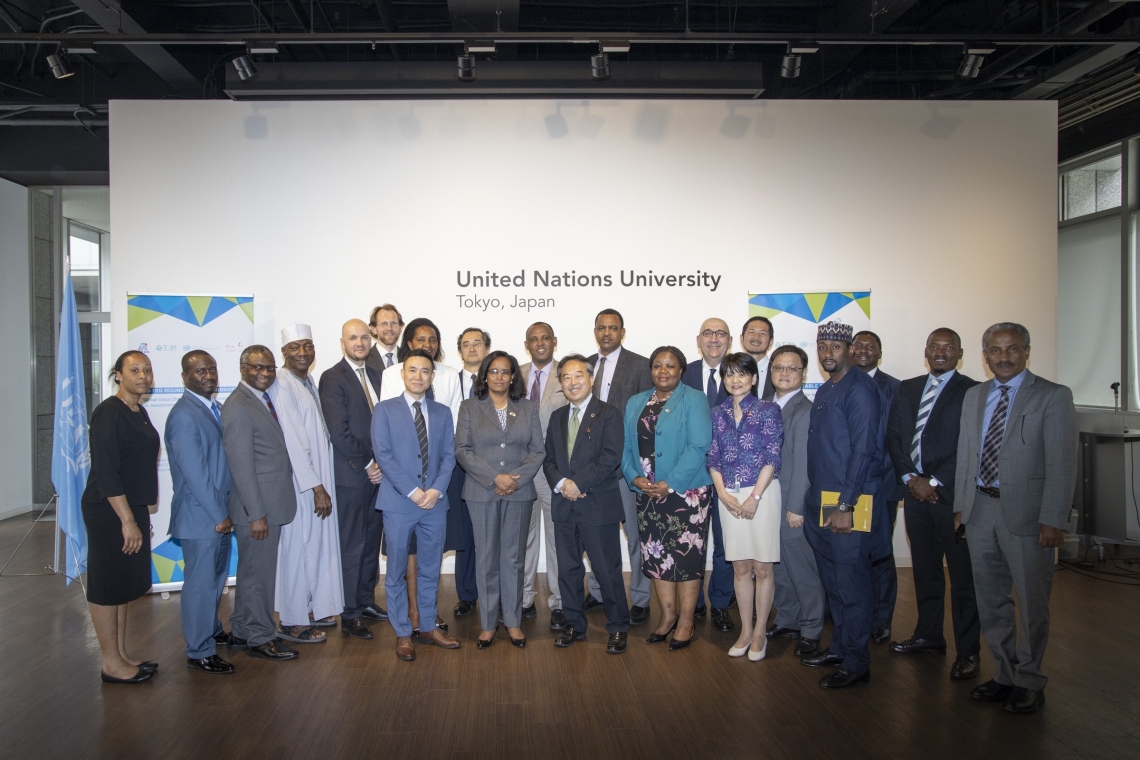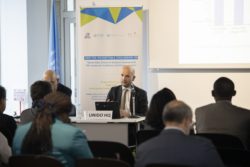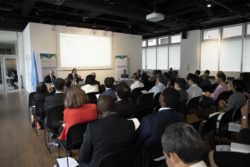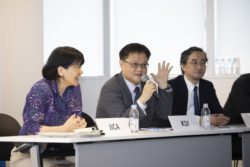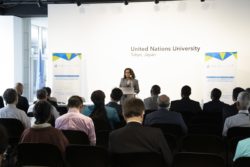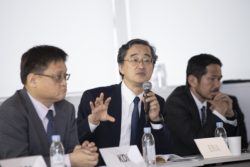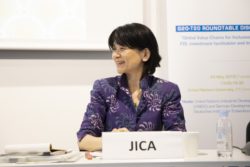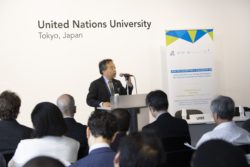Mobilizing foreign direct investment and integrating SMEs
28.05.2019
TOKYO, 28 May 2019 – Foreign investment offers a useful entry point for integration into global value chains (GVCs). It also offers a host of technology and financial resources that may bring tangible benefits to domestic firms and industries. However, FDI attraction is not without its challenges amid intensifying competition for foreign investment. This is a key insight of a G20-T20 roundtable discussion organized jointly by the United Nations Industrial Development Organization (UNIDO) and the German Development Institute , which took place today at the United Nations University (UNU) Headquarters in Tokyo at the occasion of the T20 Summit.
The roundtable discussed two major topics, namely the role of investment facilitation as well as investment promotion and interfirm linkage creation, to address ideas and option available to policymakers, which may contribute to evidence-based policy making at the level of the G20 and beyond.
“Mobilizing international investment is critical for the implementation of the 2030 Agenda and the achievement of the SDGs. Investments play a central role in the poverty eradication strategies of developing countries, in particular, by increasing the productive capacity of their economies and generating much needed employment,” said Head of UNIDO ITPO, Yuko Yasunaga, in his welcoming remarks.
In her keynote speech, Ethiopia’s Minister of Trade and Industry, Fetlework Gebregziabher Abrha, highlighted that “mobilizing FDI for sustainable development is not merely an exercise of raising more capital. Importantly, it is about raising the quality of investment.” Furthermore, she stressed that the technology requirements for entering into GVCs are more demanding than ever and, as a result of this, the risks of exclusion are real. “Even if GVC integration is achieved, there is a tangible risk for developing economies to remain trapped in lower value-added activities along the value chains,” she added.
The first expert panel discussed some of the best practices in investment facilitation and examined in greater detail the potential benefits of an international framework on investment facilitation currently under discussion at the WTO. In addition to domestic-level initiatives, WTO members are currently discussing a multilateral investment facilitation framework that should address impediments to FDI.
“Impediments to FDI often relate to the predictability, transparency and efficiency of the regulatory environment,” said Axel Berger, Senior Researcher at the German Development Institute.
The experts concluded that in order to support discussions about investment facilitation, more research is needed about the scope and potential impact of a multilateral investment facilitation framework that supports sustainable development.
The second expert panel focused on integration of domestic firms, notably small and medium-sized enterprises (SMEs), into the global production networks of multinational firms. The session examined the rationale for SME integration from the perspective of long-term upgrading and the types of policies that are needed to link domestic firms to foreign investors in a beneficial way over time.
A joint UNIDO-OECD report, titled “Integrating Southeast Asian SMEs in global value chains: Enabling linkages with foreign investors”, was presented by Adnan Seric, UNIDO Industrial Research and Policy Officer, who provided insights into research-backed strategies to support the growth and development of SMEs in developing countries. Based on the findings of the report, the session explored successful policies practices from the ASEAN region and beyond.
Panellists agreed that FDI can create positive spill-overs such as increased overall investment and productivity levels. “Strategic investment promotion, development of capabilities in domestic firms and targeted matchmaking are key ingredients for benefitting from multinational enterprise presence in host countries,” said Professor Izumi Ohno, Chief Economist at the Japan International Cooperation Agency (JICA) Research Institute. “It is imperative for governments to understand why local firms are unable to qualify as suppliers to GVCs, and where the bottlenecks in terms of skills and capabilities are found.”
The potential of the digital economy and of the fourth industrial revolution for GVCs and SME participation was also discussed. “Fourth industrial revolution technologies have the potential for fundamentally changing the way GVCs operate. Labour cost advantages may not represent a competitive advantage for developing countries any longer and that could be an issue in attracting much needed foreign investments, ” said Dongsoo Kang, Executive Director of Korea Development Institute .
Fukunari Kimura, Chief Economist at the Economic Research Institute for ASEAN and East Asia (ERIA), sounded some more optimistic views by referencing the ERIA’s latest research which “finds a positive correlation between adoption of robotics and employment growth in establishments adopting them“.
The T20-associated event is expected to contribute further to the deliberations of the T20 Task Forces and serves as a valuable input into the policy deliberations leading up to the G20 Summit in Osaka next month.
For more information:
Adnan Seric
Research and Industrial Development Officer
UNIDO Research and Industrial Policy Advice Division


